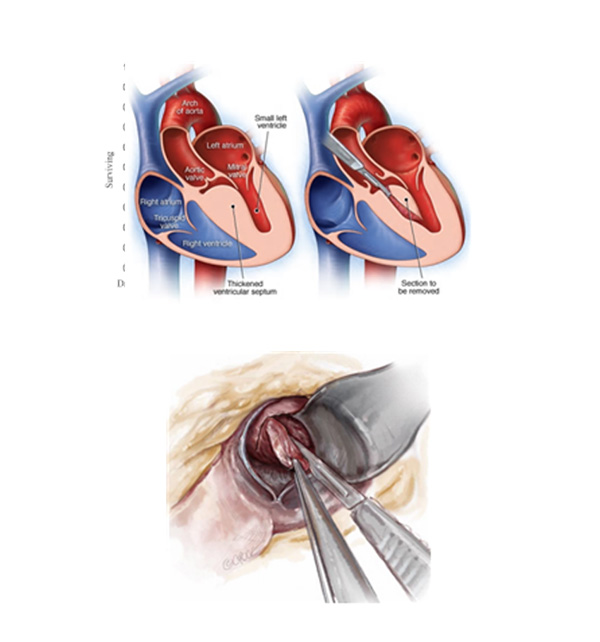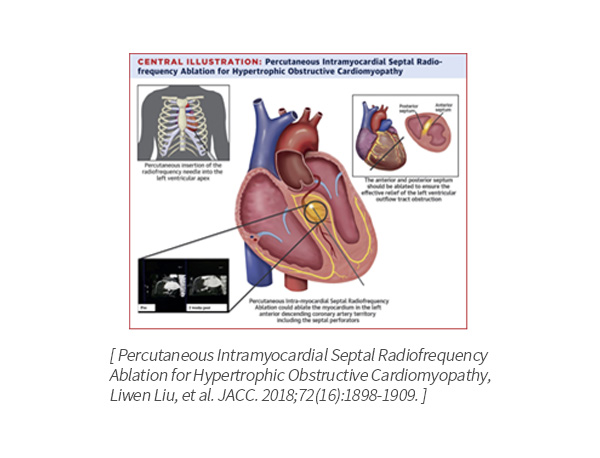
Technology
Intraseptal RF ablation
Hypertrophic Obstructive Cardiomyopathy
Hypertrophic cardiomyopathy (HCM) occurs at a rate of 1 in 500 people, and causes the heart muscle to abnormally thicken to lead heart malfunction related. Approximately 10% of HCM patients have narrow left ventricular (LV) outflow path due to pathological hypertrophy of the myocardium. And this serious heart symptom is causing a heavy load on the blood flow from the left ventricle to the aorta. This is called Hypertrophic Obstructive Cardiomyopathy (HOCM). The standard treatment for HOCM is to remove the thickened myocardium by open-heart surgery (This is called septal myectomy), but this treatment is not recommended in many cased due to some potential accompanied complications.

[Overview of myocardial resection (top) and
myocardial resection through thoracotomy (bottom)]

Various trials for non-invasive treatment of hypertrophic cardiomyopathy and ventricular septal radiofrequency cauterization treatment technology
Intraseptal RF ablation
The world's first trial in intraseptal RF ablation using a high-frequency electrode to ablate the myocardium by using a thick myocardial needle in China, was recently introduced and eventually, published in 2018 in JACC (Journals of the American College of Cardiology) due to its excellent therapeutic prognosis.
On the other hand, this newly introduced treatment can be evaluated an inadequate approach because this approach still requires to penetrate the heart from the chest wall with a thick needle.
Therefore, our company, Tau-PNU Medical has developed a novel catheter-based intraseptal RF ablation technology, access directly to ventricular septum of heart with venous system, and it can be applied to HOCM patients immediately as a safer and more convenient alternative.
There are 36,000 new cases of HOCM annually, and catheter-based treatment is estimated to have a market of $400 million (KRW 500 billion) annually, targeting 20% of these patients.
In addition, with the expansion of the intravascular RF ablation catheter, it is estimated to have a market size of $500 million (KRW 600 billion) per year for preemptive ablation before TMVR treatment (mitral valve replacement), and $60 million (KRW 70 billion) per year for intramyocardial ablation for ventricular tachycardia treatment.

